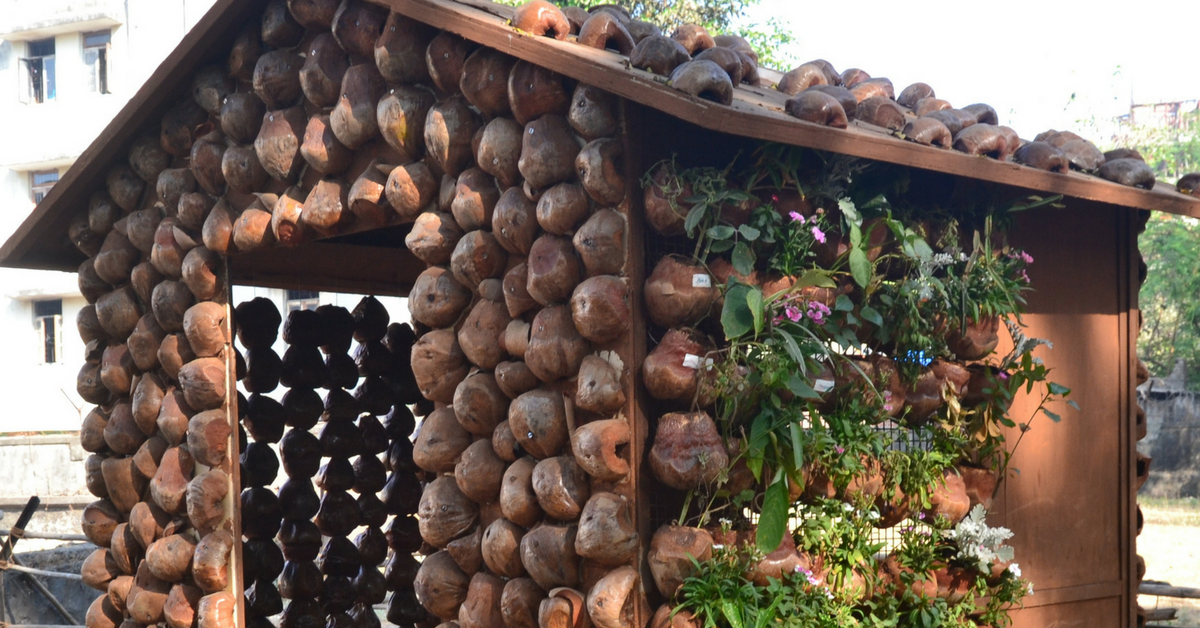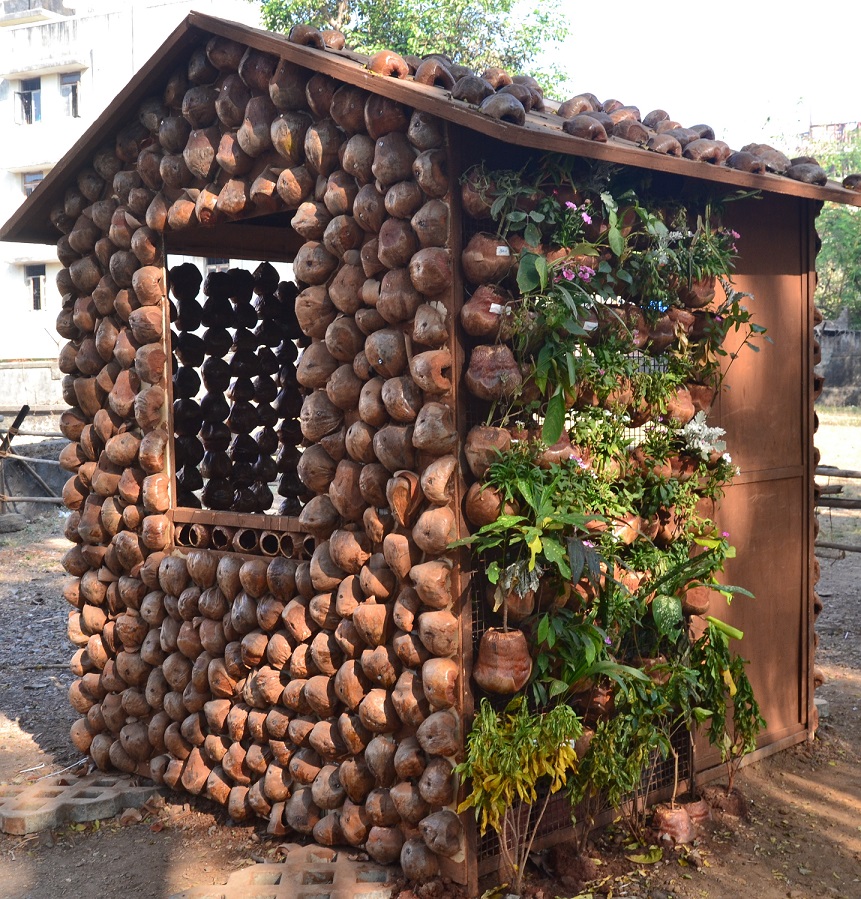Can One Build a Low-Cost, Eco-Friendly House from Tender Coconut Shells? This Mumbai duo did it!
This idea opens our eyes to how tender coconut shells, which end up in garbage dumps and breeding mosquitoes, can be used to build low cost houses.

Manish Advani, a marketing professional, and Jayneel Trivedi, an architect, have put together a solution for two seemingly unrelated issues – the need for low-cost housing, and to arrest the epidemic of dengue. The solution – tender coconut shells!
Manish, who has been trying to fight Mumbai’s garbage woes said the idea came to him when his son started to suffer from a breathing problem.

Doctors were of the opinion that the problem was caused by pollution and heaps of trash in the city. By exploring ways to solve the garbage issue, Manish said he began with the simple step of composting waste at home.
“One day when my wife handed me a tender coconut shell to compost, I was stunned. I didn’t know how to compost them. Coconut shells are hard, and take a very long time to decompose. I did some research and found out that undecomposed shells become breeding grounds for disease-causing mosquitoes and flies. Most of us are unaware that they pose a huge health hazard – dengue,” says Manish.
Manish was bent on finding smart ways to reuse shells. “My first idea to reuse coconut shells was to create planters. By slicing the bottom of a coconut shell, creating a small hole for draining water and filling the shell with mud, an easy and natural pot is ready to grow plants,” says Manish.
This idea, he says, was embraced by many corporates in Mumbai. It was while brainstorming for more creative uses for these shells that the unlikely idea of building houses chanced upon him.
Manish got in touch with Jayneel Trivedi who was inquisitive for ideas in sustainable housing.
The convergence of their interests brought out the rather brilliant concept of low-cost eco-friendly housing using coconut shells.

The duo took the help of 20 students from Somaiya College in Mumbai to build the Coconut House prototype. The students collected tender coconut shells, dried them for about 18 days, and then started building the house. They used scrap metals and wood to build the frames. The shells were halved to be stacked as walls and reinforced with mud, coconut and bamboo mesh. The exterior walls of the house double up as vertical gardens. They hope that every wall of a Coconut House will be able to grow food for the family.
Jayneel says, “We used the simple principle of air cavities in building the Coconut Houses. The natural cavity of the coconut shells when used on walls and roofs help in keeping the house naturally cool. The temperature drops by about 4-5 degrees and this eliminates the need for air coolers and air conditioners that consume a lot of water and energy.” This prototype of the coconut house cost the team just Rs 10,000 – making it one the cheapest housing ideas.
You may also like: This Couple’s Quest for Natural Living Has Resulted in a Mini Forest and an Energy Efficient Home
Manish’s and Jayneel’s Coconut House initiative has won a bronze in the International Green Apple Awards, an award that recognizes environmental best practices around the world. Jayneel received the award during a ceremony at the Houses of Parliament in Westminster, London, this June.
Apart from the Coconut House, the team is also exploring various productive and sustainable ways of using these versatile shells, one of them being – the mulching of the shells, which can help farmers cut down the consumption of water and fertilizers drastically.

You can write to Manish [email protected] at and Jayneel at [email protected]
Like this story? Or have something to share? Write to us: [email protected], or connect with us on Facebook and Twitter.
NEW: Click here to get positive news on Whatsapp!
If you found our stories insightful, informative, or even just enjoyable, we invite you to consider making a voluntary payment to support the work we do at The Better India. Your contribution helps us continue producing quality content that educates, inspires, and drives positive change.
Choose one of the payment options below for your contribution-
By paying for the stories you value, you directly contribute to sustaining our efforts focused on making a difference in the world. Together, let’s ensure that impactful stories continue to be told and shared, enriching lives and communities alike.
Thank you for your support. Here are some frequently asked questions you might find helpful to know why you are contributing?


This story made me
-
97
-
121
-
89
-
167











